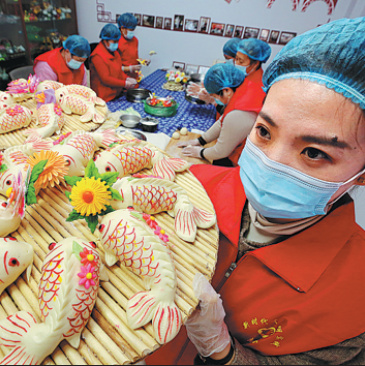The time of our lives


"In times gone by, at the regular fairs in different towns, there were people who 'sang the calendar'," he says.
The "calendar singers" would recite the proverbs and explain the dates to the illiterate farmers: When the Start of Spring or Rain Water comes, and what farmers should do in the fields or to prepare for the changing weather.
"Reading and explaining this calendar was a family tradition passed on down the generations," he says.
Li's grandfather ran a small workshop making spirit money. At night, there was no electricity or any organized entertainment, so villagers came to Li's home while the grandfather was packing spirit money with a dim kerosene lamp on. "Villagers shared ghost stories and information, including what the calendar singers sang at the fairs," he recalls.
On hot summer nights, when it was sweltering indoors, villagers, young and old, men and women, sat against haystacks in the open air, exchanging stories, gossip and information.
"That's how I learned the solar terms and the farmers' proverbs," Li says.
He easily and succinctly recites these proverbs: "Nurture silkworms on Grain Rain, which will bring you money on Grain Buds"; "Around Pure Brightness, sow melons and beans"; and "It's too early to grow wheat on Autumn Equinox, too late on Frost's Descent, but it's time on Cold Dew".
He continues to talk about the practices prevalent once in the countryside: Traders offered higher prices for fur processed after Frost's Descent because hair fell out if processed earlier; it was better to pickle meat after Winter Solstice; and radish pulled up after Frost's Descent was not bitter.




































